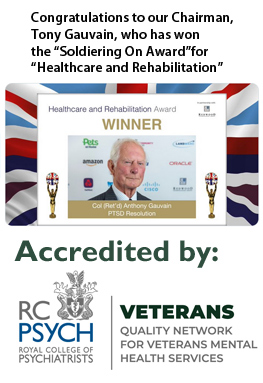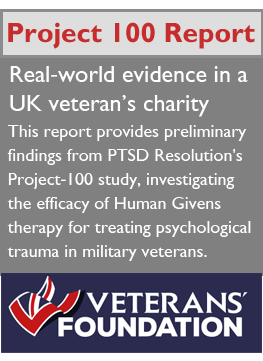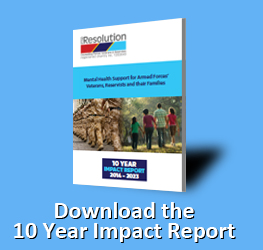Paris Aftermath: UK Industry must be ready to help Traumatised Staff

With 129 people so tragically killed on November 13th in Paris, there are many hundreds or more who witnessed the events, who will be deeply traumatised and returning to work at some stage.
In the event of a similar event in the UK, sadly few employers would know how to recognise if staff are suffering from PTSD (Post Traumatic Stress Disorder) and what to do about it – says the charity for Forces' Veterans' mental welfare PTSD Resolution.
Most organisations have contingency plans to deal with disruption by acts of terrorism and other catastrophic events. But few plan for the impact on the mental health of staff - which can be considerable financially for the organisation, and in terms of the human costs.
The current level of threat from terrorism notified by MI5 is 'severe'. So responsible organisations need a strategy to identify and deal with the impact of an event on the mental health of personnel, says PTSD Resolution.
"You do not need to turn line managers or HR staff into psychotherapists, but rather to have an understanding of the symptoms of trauma in the organisation, and then signpost treatment," says Piers Bishop, director of therapy.
"Some appropriate training is recommended for managers. The key issues can usually be dealt with in a short course - as is recommended for CPR resuscitation training. You could argue that both are essential skills in the security industry."
Organisations also need to develop a culture of openness about mental health and a clear strategy to identify and resolve issues when they arise, without fear of embarrassment or sanction for employees.
It should include a process for staff to say when they are struggling with a problem in any area of their work: this may not be directly related to an incident, but be symptomatic of trauma, says Bishop.
Critical to this are on-line assessment systems such as WeThrive for periodic staff reviews to identify quickly and easily if there might be a problem and start a conversation.
The strategy should include prompt access to professional help. After all, Bishop says, operational machinery is maintained regularly and repaired when necessary: it is rational to adopt the same approach with your people.
The local GP probably won't be a trauma specialist. The NHS guidelines do not recommend medication for post-traumatic symptoms, but many GPs still offer antidepressants to new trauma cases. So the advice is to insist on a referral to a trauma clinic.
"Therapy is not always the best policy. In many cases initial symptoms subside over a few days or weeks. It is usually best to let this happen by itself. 'Critical incident debriefing' - where everyone involved in an event is given counselling - is now thought to cause more problems than it solves", says Piers Bishop.
If the symptoms have not subsided after a month, or have got worse, it is time to do something about it.
"If a member of staff is, or might be suffering the effects of trauma, policy should be to let them know that as an organisation you are aware of what they have been through; that the culture is to be open about stress reactions and to help them get help if necessary so that everyone can continue to work well together".
PTSD Resolution provides free therapy to veterans of the UK Armed Forces to resolve the effects of military trauma. Contact us about Employer Training






